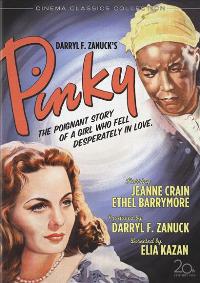
A
Black Name
I was listening to The
Takeaway program on NPR one afternoon, and there was an
interview playing with a black woman who was discussing her concerns about naming
her son with a name that would identify him as black or a “black-sounding”
name. There were two responses from
other black listeners expressing their offense at the woman’s aversion to using
a name that would identify her child as black.
Their position was that racism and discrimination will not go away if
you strategically give your children names.
The listeners felt that an individuals name was not that important. But I wonder?
A name is a source of identity and
can reveal your ancestry, religious beliefs and interests. It can tell about your life experiences and
expectancy, your upbringing and societal influences. An excellent example of how powerful and
enduring a name is, is illustrated by the scene in the movie Roots
adapted from Alex
Haley’s book of the same name, where the character
of Kunta Kinte is being tortured on the order of a white overseer because he
refuses to change his name to Toby.
A name is very profound and can have
an impact on your experiences in life, according to some philosophies and
cultures. The Kabalarian
Philosophy believes that a “balanced name can channel you
toward your true purpose in life and can impact on the way you look at
yourself, the way others perceive and treat you, your level of confidence, your
energy, creativity and self-esteem.”
When Christians convert to Islam they adopt an Arabic name in order to
identify themselves as Muslims.
Reportedly, Native Americans have been known to wait up to a year before
naming their children in order to see what their child’s personality traits
will be to be able to give him a name suitable to their personality. In some African cultures, a baby is named for
the circumstances surrounding their birth, and again for the family’s hopes for
the future or for a beloved relative so that the child will grow to be like that
person. In Japan, they name their
children after moral or virtuous qualities or for their position in the family
structure (http://www.thetakeaway.org/story/role-names-racism-cultural-pride/).
“Black-sounding” or “ghetto” names
such as Lynishia, Laquisha, Shaqueen, or Marquise are common in the black
community and are controversial. They
are connected to stereotypes about black people: ignorant, inner-city, “welfare-mamma’s”. People like the woman being interviewed on
the radio program believe that these kinds of names serve as a disadvantage to
the people who have to wear them. Tests
using Google have clarified the negative association that these names
have. The image results that come up
when these names are entered into Google are usually mug shots of young black
men or women or of women that are dressed as strippers.
Critics of these names believe these
names are without authentic cultural roots and can be a source of embarrassment
and a hindrance to social and economic advancement. According to one educational consultant, the
longer, more uniquely spelled a child’s name is, the less likely the child is
to be called on to participate in school.
People have reported that employers throw out the resume’s that are from
people with “black-sounding” names without looking at the person’s
credentials. Individuals with “ghetto”
names have been known to shorten them in order to avoid embarrassment in casual
and professional situations. So where do
these names come from?
During slavery, when Africans were
made into slaves in America, they were stripped of their tribal and clan names
and they were given the names of their slave master in order to dehumanize them
and void their identity, hopes and dreams.
After the Civil War, blacks wanted to reinvent their identity. They did not know about their ancient naming
ceremonies due to being cut off from their roots, and in order to be unique,
they began embellishing their names.
During the Civil Rights Movement, black people rediscovered their
African roots, and along with the rise of Islam, they began using Arabic and
Swahili names. As the sounds of jazz and
hip-hop grew in influence, they were occasioned by an increase in lyrical
expression. As a result, black people’s
names became a mixture of Swahili names and percussive sounds which gave rise
to names such as Lacretia, Aniqua, DeShawn, DeVonta, or Shaquille. Economic disadvantage
inspired parents to name their children for their dreams and material desires
for luxury items and gave rise to names the like of Gucci, Lexus and
Mercedes. Qualities that parents felt
described their children produced names in the vein of Serenity, Heaven or Precious
(http://www.datalounge.com/cgi-bin/iowa/ajax.html?t=9542689#page:showThread,9542689)
These names illustrate a lack of cultural
awareness attendant to a people who have been deprived of a proper education
about their history, and serve as a reminder of the damage that has been done
as a result of this miseducation. They
illustrate the struggle black people are enduring in order to carve out an
identity.
Published: http://www.democracychronicles.com/origins-black-name/
Published: http://www.democracychronicles.com/origins-black-name/



